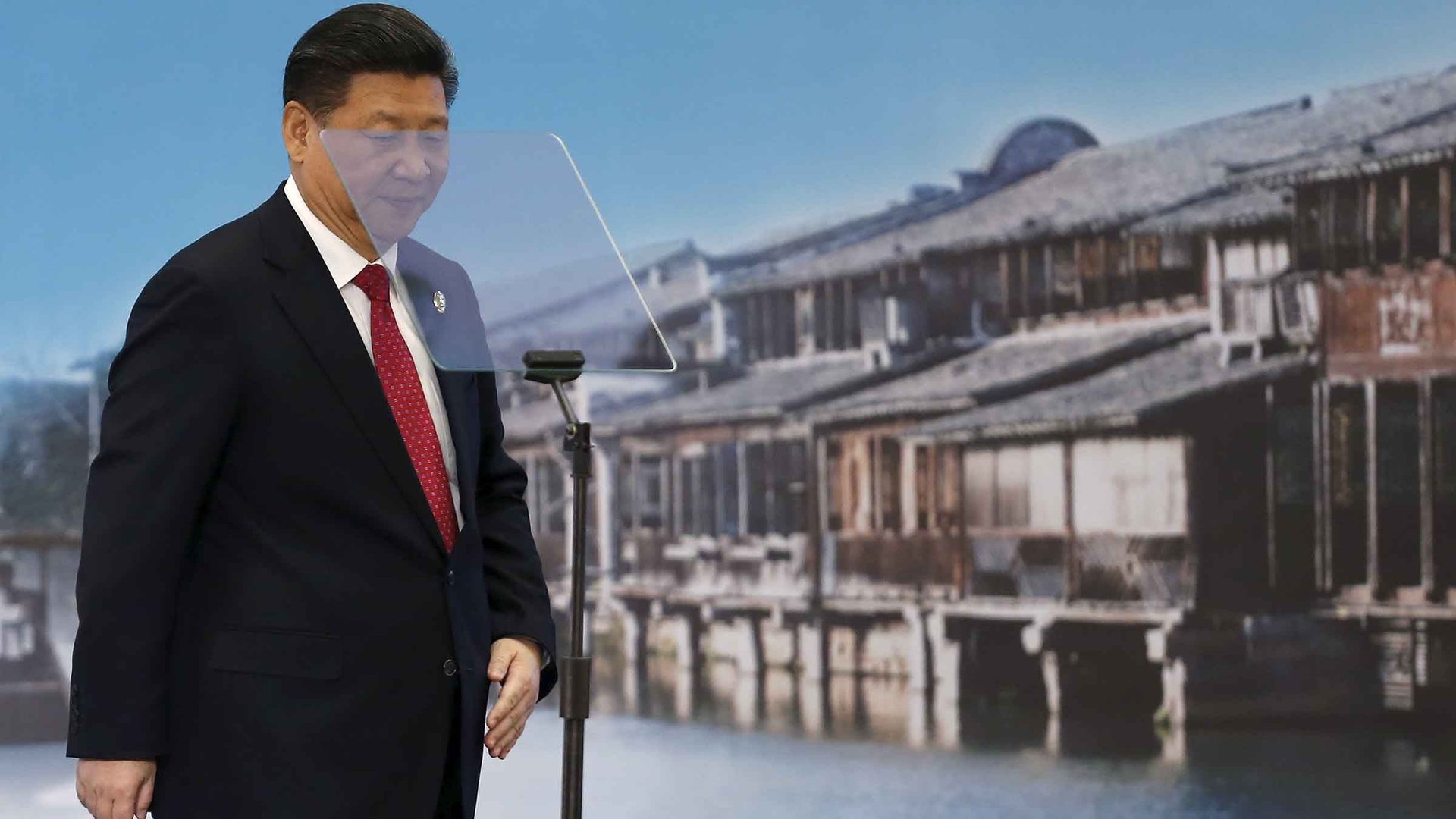China’s president championed online freedom—two days after a lawyer was tried for tweeting
Speaking at an internet conference this morning (Dec. 16), Chinese president Xi Jinping told attendees that China should strive to construct an online world that offers its users better freedoms.


Speaking at an internet conference this morning (Dec. 16), Chinese president Xi Jinping told attendees that China should strive to construct an online world that offers its users better freedoms.
But the language Xi used at the World Internet Conference—a rather un-international event organized by Beijing that really aims to bolster support for China’s strict internet regulations—was typical of any high-level Chinese governmental speak. That is, what Xi says and what it will eventually mean are two very different things.
“We must respect internet users’ exchange of ideas, and their right to voice their opinions,” said Xi (link in Chinese). But his calls for freedoms online came hand in hand with statements about the need for order, and rules: ”Cyberspace and society are alike; since we wish to promote freedom, so we must also protect order.”
One particularly appropriate example of the kind of rules Xi was talking about is the recent trial of Pu Zhiqiang, a prominent human rights lawyer detained last year after attending a seminar on the 1989 Tiananmen Square massacre. The evidence used against Pu, who could face eight years in jail for “inciting ethnic hatred” and “creating a disturbance,” eventually boiled down to just seven social media messages.
Xi also referred back to his earlier notion of “cyber sovereignty,” a term that the president has been using in an attempt to curb foreign countries’ criticism of the way China controls the internet. “Countries have the right to independently choose how they will tread the path of cyber development, as well as issue their own regulations and public policies,” he said.